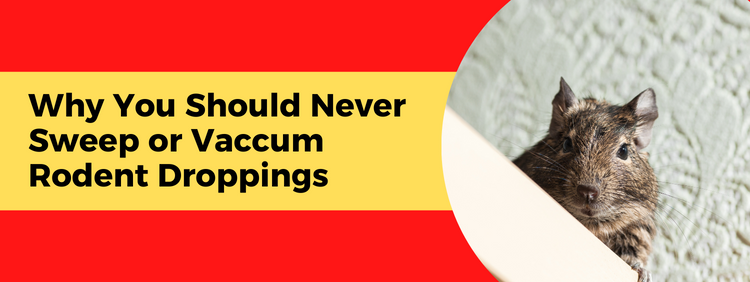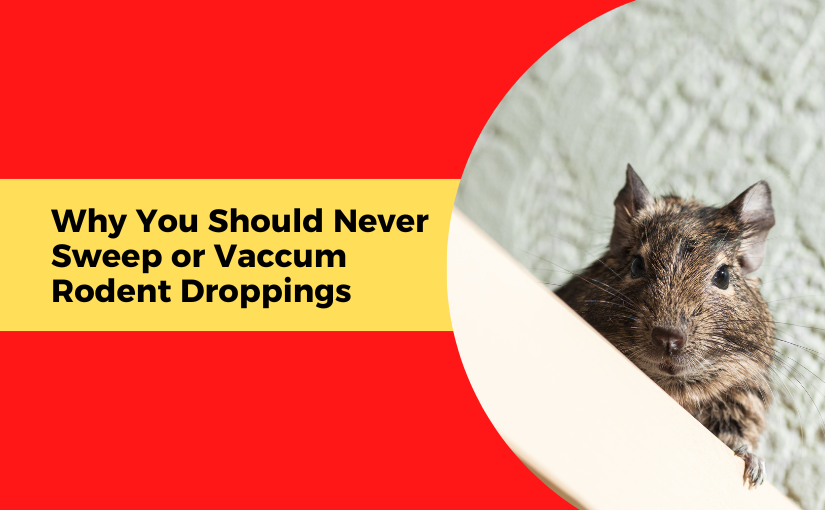
Because rats and mice are nocturnal, droppings are often the first sign of a rodent infestation. Rodent droppings can contain bacteria and viruses, and you can expose yourself to diseases if you do not clean them up correctly, taking proper precautions. Without professional rodent control services in Niagara, you may not be able to resolve the infestation completely, meaning that you’ll have to keep cleaning up droppings, potentially putting yourself and your family at risk every time you do.
What Diseases Can You Get From Rodent Droppings?
Rodent droppings can contain disease-causing bacteria and viruses. Possible bacterial infections include salmonellosis and leptospirosis. Salmonellosis affects the digestive tract and causes gastrointestinal symptoms. Leptospirosis causes flu-like symptoms such as fever, nausea, headache, diarrhea, and muscle aches, as well as skin rash and yellowing of the eyes and skin called jaundice. While these bacterial infections can have serious complications, most people recover from them completely. Both are treatable with antibiotics.
Some species of rats and mice can also carry hantavirus, a pathogen that can cause severe respiratory distress. Antibiotics do not work on viruses, and there are no antiviral therapies that are effective against hantavirus. Treatment for hantavirus infection typically involves symptom management until the disease runs its course, which often requires artificial ventilation in a hospital when patients are no longer able to breathe on their own. Hantavirus does not spread by person-to-person contact, but there is no vaccine for it and about one-third of hantavirus patients die from it.
How Can Cleaning Rodent Droppings Expose You to Diseases?
You should leave rodent droppings undisturbed until you are prepared to clean them up. If you disturb them, even to clean them up, you could launch aerosolized particles containing pathogens into the air. This puts you at risk of inhaling them. Once pathogens are inside your body, it is easier for them to infect tissues and cause you to get sick.
While not all rodents are infected with diseases, there is no way to tell by looking at them whether they are infected. This assumes that you see them at all which, because they are nocturnal, you often do not. Therefore, it is safest to assume that all rodents are infected and to always take precautions when cleaning up their droppings.
How Do You Clean Rodent Droppings Safely?
Because of the risk of inhaling pathogens from airborne particles, you should always wear a respirator or a face mask designed to filter out particles, such as an N95 mask. You can also absorb pathogens through the skin, so you should wear rubber gloves. Ventilating the area by opening windows and running fans can help prevent you from inhaling pathogens.
A general household disinfectant is usually sufficient to kill the pathogens that may be present in rodent droppings. Otherwise, you can make your own by mixing one part bleach with nine parts water and putting it in a spray bottle. Soak the droppings with the solution or disinfectant until they are saturated. Let them sit for five minutes, then wipe up the droppings with a paper towel. Put the paper towel with the waste material in a sealable plastic bag. Use a sponge or mop to clean the area using the same disinfectant.
The area is clean and ready for use after drying for 30 minutes. During that time, put the mop head or sponge into the plastic bag with the paper towel. Spray the disinfectant on your gloved hands or wash them with soap and water. Pull the gloves off so that they turn inside out and put them in the bag. Seal the bag and place it in a garbage can with a lid. Then, using soap and water, wash your bare hands again.
Dealing with rodents can be dangerous, which is why you should turn to Truly Nolen for professional pest control services.
